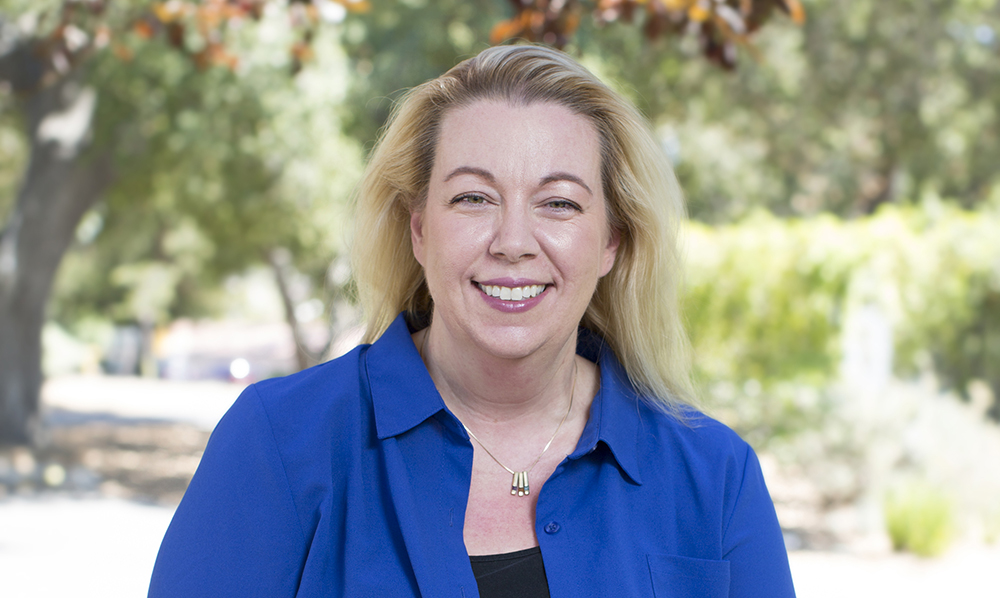Researchers Study Therapeutic Strategies for “Natural Killer Cells”
August 27, 2021
White blood cells known as “natural killer cells”—named for their ability to attack disease without requiring activation by the immune system—could play a vital role in battling cancer, according to new research by Lisette de Pillis, Norman F. Sprague Professor of Life Sciences at Harvey Mudd College.
The so-called NK cells might be effective in the development of oncolytic virus therapies, a treatment engineered to selectively target, infect and kill cancer cells, de Pillis writes in the Bulletin of Mathematical Biology (May 2021). She collaborated on the paper, “Natural Killer Cells Recruitment in Oncolytic Virotherapy: A Mathematical Model,” with researchers from the National University of Lesotho, the University of Pretoria and The College of Saint Rose.
“It’s a very promising therapeutic strategy,” de Pillis says, “but there is still much to learn, including how these virus particles interact with other components of the immune system and what effects that may have on treatment efficacy.”
NK cells are thought to account for between 5 percent to 20 percent of all lymphocytes – or white blood cells – in the human body. They have a faster immune reaction than other white cells, making them critical “first responders” when a cancer or infection is emerging, de Pillis notes. Further, NK cells are known to detect and eliminate infected or mutated cells that might be overlooked by other parts of the immune system.
The aim of the study was to consider, through mathematical modeling, the conditions under which oncolytic virotherapy might be administered successfully. (Oncolysis is the chemical or physical breakdown of cancer cells.) The researchers suggested the timing of NK cell treatment—not too early and not too late—is significant in administering virotheraphy.
The team acknowledged that there are more than 10 types of immune cells known to play a role in oncolytic virotherapy. They limited their study to NK cells because of their “emerging role” and because their behavior requires “deeper examination.”
De Pillis began the research collaboration in 2015, when she was invited to present work on tumor-immune modeling at a workshop held at the American Institute for Mathematics.
“We are all motivated by knowing that our work is contributing to the ongoing effort to help cancer sufferers, and that is particularly rewarding,” she says.
To date, the team’s paper has been accessed more than 200 times.
